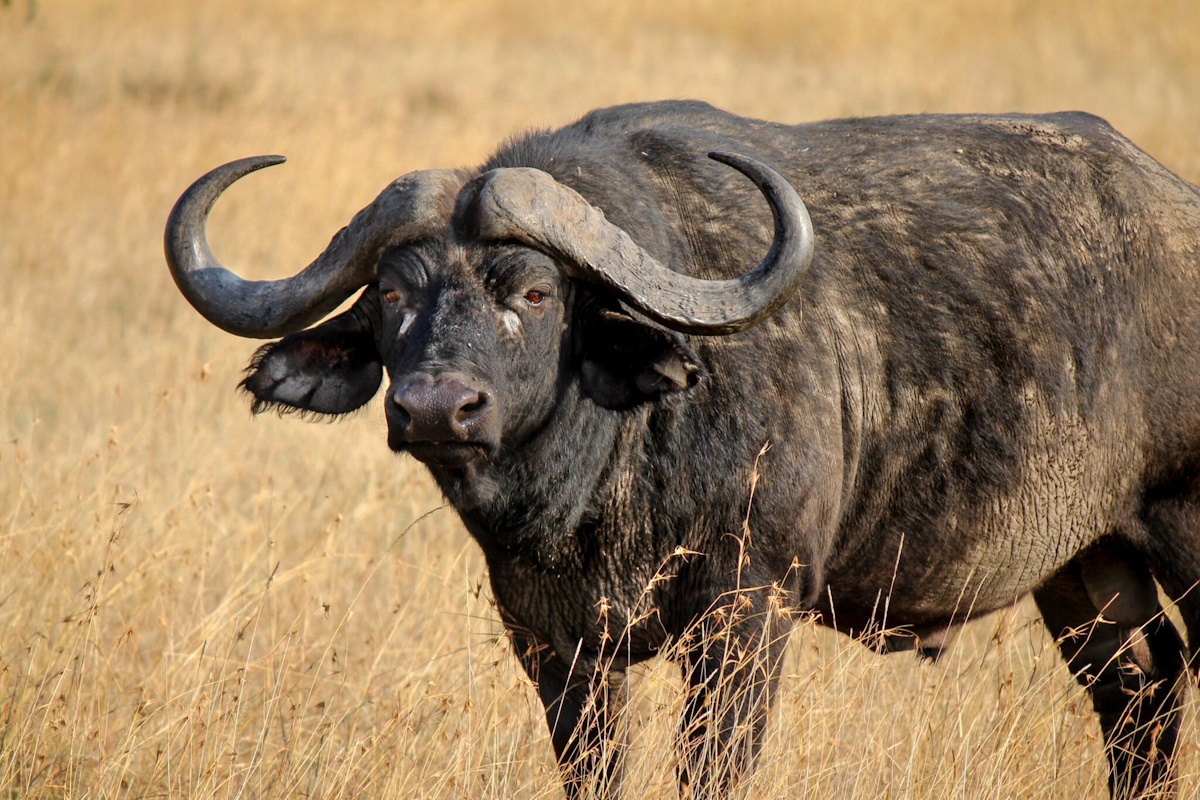
The Cape Buffalo: Africa's Formidable Bovine
The Cape Buffalo, also known as the African Buffalo, is one of the most iconic and formidable animals in Botswana's wilderness. As a member of the "Big Five," these powerful bovines are a sight to behold and a critical part of the ecosystem.
Quick Facts
- Scientific Name: Syncerus caffer
- Weight: 500-900 kg (1,100-2,000 lbs)
- Height: 1-1.7 m (3.3-5.6 ft) at the shoulder
- Lifespan: 15-25 years in the wild
- Diet: Herbivore (grass, leaves, and shrubs)
Appearance and Characteristics
Cape Buffaloes are massive, muscular animals with a distinctive set of horns that curve upward and inward. Their coat is typically dark gray to black, and they have a beard-like fringe under their chin. Males are generally larger than females and have thicker, more developed horns.
Behavior and Social Structure
Cape Buffaloes are highly social animals, living in herds that can number from 50 to several hundred individuals. These herds are led by dominant females and include a mix of adults, sub-adults, and calves. Adult males may form bachelor groups or live solitarily, joining the larger herds during mating season.
Role in the Ecosystem
As large herbivores, Cape Buffaloes play a crucial role in shaping the landscape of Botswana. Their grazing habits help maintain grasslands and create habitats for other species. They are also an important prey species for large predators like lions, though their formidable defenses make them a challenging target.
Did You Know?
Cape Buffaloes are often referred to as "The Black Death" or "The Widowmaker" due to their aggressive nature and the number of human fatalities they cause each year. They are considered one of the most dangerous animals in Africa.
Conservation Status
While not currently endangered, Cape Buffalo populations face threats from habitat loss, hunting, and disease. In Botswana, they are protected in national parks and game reserves, where they continue to thrive.
Where to See Cape Buffaloes in Botswana
Cape Buffaloes can be found in several of Botswana's national parks and game reserves, including:
- Chobe National Park
- Moremi Game Reserve
- Okavango Delta
- Savuti
When viewing Cape Buffaloes on a safari, always maintain a safe distance and follow the guidance of your experienced safari guide. These powerful animals demand respect and caution.